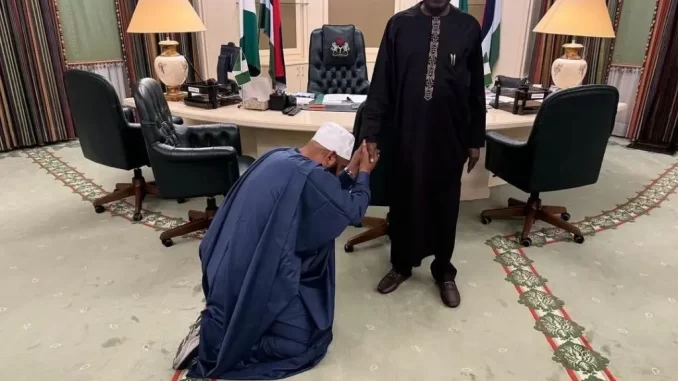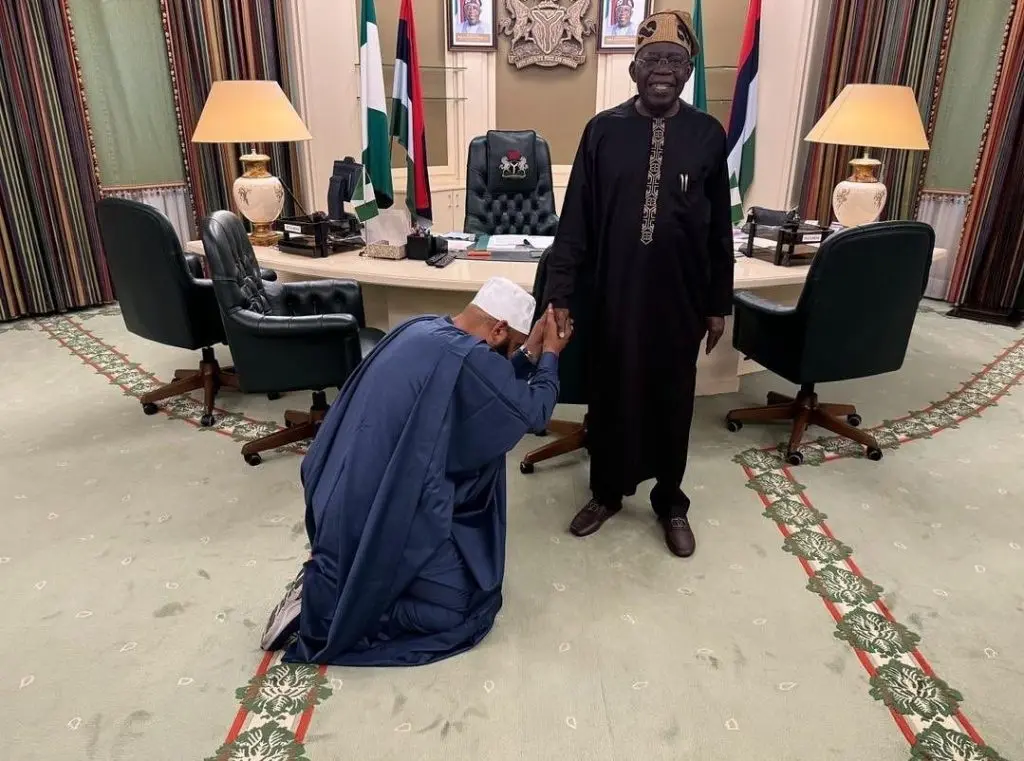
A recent visit by Niger State Governor, Umaru Bago, to President Bola Tinubu at the Presidential Villa in Abuja has ignited a heated debate across Nigeria. The controversy arose when a photograph capturing the moment Governor Bago knelt before Tinubu during the visit went viral, eliciting a flurry of reactions from concerned citizens.
Aisha Yesufu, a prominent political activist and critic, took to her social media handle to express her disappointment with the viral image. In a statement, she strongly condemned what she referred to as “slavish politics” and called for an end to such practices.
“A Governor of one of the 36 federating units of Nigeria went to kneel down for Mr Tinubu. Nahhhhhh this slavish politics must be dismantled.”
9News Nigeria reports that Governor Bago’s controversial gesture sparks debate on political subservience in Nigeria. It has reignited discussions about the nature of political relationships and power dynamics within Nigeria. Many individuals have raised questions about the implications of such displays of deference and subservience in the realm of governance.

Critics argue that acts of kneeling or bowing down before political leaders undermine the principles of equality and democratic governance. They argue that such gestures perpetuate a culture of subservience and reinforce power imbalances between politicians and the citizens they are meant to serve. This controversy has highlighted the need for a more equitable and accountable political system that fosters a culture of respect based on merit and service to the people.
However, supporters of Governor Bago’s gesture argue that it is a sign of respect and loyalty to a political figure who holds significant influence and power. They contend that such acts are cultural and symbolic gestures that reflect traditional values of honor and reverence towards leaders. Supporters argue that these gestures should not be viewed as acts of subservience but rather as expressions of gratitude and allegiance.
The debate surrounding this controversial gesture underscores the ongoing struggle to strike a balance between respect for leaders and the need to uphold democratic principles. It raises important questions about the role of symbolism in politics and the impact of these gestures on public perception and the overall governance of the country.
As Nigeria continues to grapple with political challenges and strives for a more inclusive and accountable system, this incident serves as a catalyst for reflection and a call to dismantle practices that perpetuate an unhealthy power dynamic between politicians and the people they serve.
